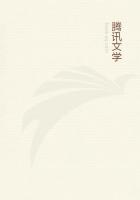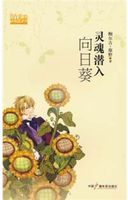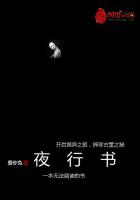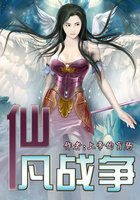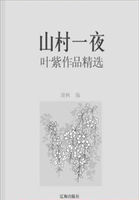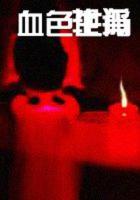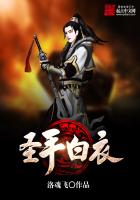The Holy Spirit, too, works within, that the medicine externally applied may have some good result.Otherwise, even though God Himself make use of the creatures that are subject to Him, and in some human form address our human senses, whether we receive those impressions in sleep or in some external appearance, still, if He does not by His own inward grace sway and act upon the mind, no preaching of the truth is of any avail.
But this God does, distinguishing between the vessels of wrath and the vessels of mercy, by His own very secret but very just providence.When He Himself aids the soul in His own hidden and wonderful ways, and the sin which dwells in our members, and is, as the apostle teaches, rather the punishment of sin, does not reign in our mortal body to obey the lusts of it, and when we no longer yield our members as instruments of unrighteousness,(10)then the soul is converted from its own evil and selfish desires, and, God possessing it, it possesses itself in peace even in this life, and afterwards, with perfected health and endowed with immortality, will reign without sin in peace everlasting.
CHAP.7.--OF THE CAUSE OF CAIN'S CRIME
HIS OBSTINACY, WHICH NOT EVEN THE WORD OF GOD COULD SUBDUE.
But though God made use of this very mode of address which we have been endeavoring to explain, and spoke to Cain in that form by which He was wont to accommodate Himself to our first parents and converse with them as a companion, what good influence had it on Cain? Did he not fulfill his wicked intention of killing his brother even after he was warned by God's voice?
For when God had made a distinction between their sacrifices, neglecting Cain's, regarding Abel's, which was doubtless intimated by some visible sign to that effect; and when God had done so because the works of the one were evil but those of his brother good, Cain was very wroth, and his countenance fell.For thus it is written: "And the Lord said unto Cain, Why are thou wroth, and why is thy countenance fallen? If thou offerest rightly, but dost not rightly distinguish, hast thou not sinned? Fret not thyself, for unto thee shall be his turning, and thou shalt rule over him." In this admonition administered by God to Cain, that clause indeed, "If thou offerest rightly, but dost not rightly distinguish, hast thou not sinned?" is obscure, inasmuch as it is not apparent for what reason or purpose it was spoken, and many meanings have been put upon it, as each one who discusses it attempts to interpret it according to the rule of faith.The truth is, that a sacrifice is "rightly offered" when it is offered to the true God, to whom alone we must sacrifice.And it is "not rightly distinguished"when we do not rightly distinguish the places or seasons or materials of the offering, or the person offering, or the person to whom it is presented, or those to whom it is distributed for food after the oblation.Distinguishing(2) is here used for discriminating,--whether when an offering is made in a place where it ought not or of a material which ought to be offered not there but elsewhere; or when an offering is made at a wrong time, or of a material suitable not then but at some other time;or when that is offered which in no place nor any time ought to be offered; or when a man keeps to himself choicer specimens of the same kind than he offers to God; or when he or any other who may not lawfully partake profanely eats of the oblation.
In which of these particulars Cain displeased God, it is difficult to determine.But the Apostle John, speaking of these brothers, says, "Not as Cain, who was of that wicked one, and slew his brother.And wherefore slew he him? Because his own works were evil, and his brother's righteous."(3) He thus gives us to understand that God did not respect his offering because it was not rightly "distinguished" in this, that he gave to God something of his own but kept himself to himself.For this all do who follow not God's will but their own, who live not with an upright but a crooked heart, and yet offer to God such gifts as they suppose will procure from Him that He aid them not by healing but by gratifying their evil passions.And this is the characteristic of the earthly city, that it worships God or gods who may aid it in reigning victoriously and peacefully on earth not through love of doing good, but through lust of rule.The good use the world that they may enjoy God: the wicked, on the contrary, that they may enjoy the world would fain use God,--those of them, at least, who have attained to the belief that He is and takes an interest in human affairs.For they who have not yet attained even to this belief are still at a much lower level.Cain, then, when he saw that God had respect to his brother's sacrifice, but not to his own, should have humbly chosen his good brother as his example, and not proudly counted him his rival.But he was wroth, and his countenance fell.This angry regret for another person's goodness, even his brother's, was charged upon him by God as a great sin.And He accused him of it in the interrogation, "Why are thou wroth, and why is thy countenance fallen?" For God saw that he envied his brother, and of this He accused him.For to men, from whom the heart of their fellow is hid, it might be doubtful and quite uncertain whether that sadness bewailed his own wickedness by which, as he had learned, he had displeased God, or his brother's goodness, which had pleased God, and won His favorable regard to his sacrifice.But God, in giving the reason why He refused to accept Cain's offering and why Cain should rather have been displeased at himself than at his brother, shows him that though he was unjust in "not rightly distinguishing," that is, not rightly living and being unworthy to have his offering received, he was more unjust by far in hating his just brother without a cause.
Yet He does not dismiss him without counsel, holy, just, and good."Fret not thyself," He says, "for unto thee shall be his turning, and thou shall rule over him." Over his brother, does He mean?


